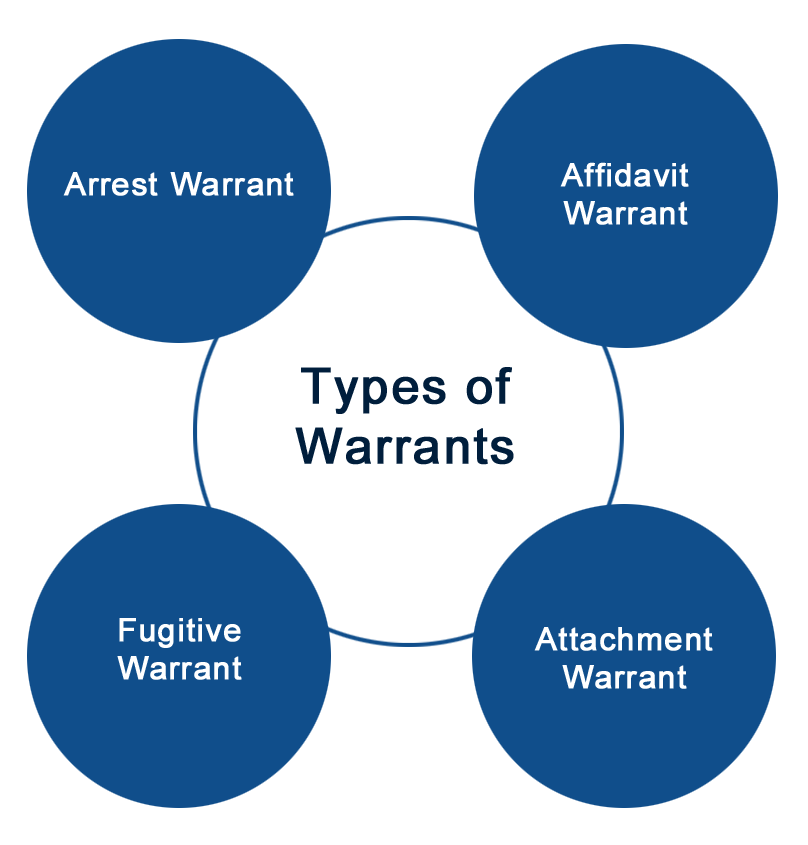
Arrest Warrants, Bench Warrants, Attachment Warrants in Louisiana
The most basic definition of a warrant states that it is a legal document authorizing law enforcement to locate and apprehend an individual and compel them to appear before a judge. In the State of Louisiana, there are several different types of warrants, each with its own specialized function.
Arrest Warrant: Issued by a judge based on testimony from law enforcement that they suspect an individual has committed a crime. The arrest warrant protects the Fourth Amendment right by providing full disclosure of the reasons behind the arrest and the crime committed.
Affidavit Warrant: Similar to an arrest warrant, an affidavit warrant is granted by a judge based on information provided by law enforcement on an affidavit of probable cause. The information on this affidavit, including evidence and information regarding the alleged crime, serve as the basis for the individual’s arrest.
Fugitive Warrant: A fugitive warrant is issued when an individual has eluded arrest or has fled the area entirely. Allowing law enforcement broad authority to track down and apprehend the individual, this warrant keeps fugitives of justice from fleeing the consequences of their actions.

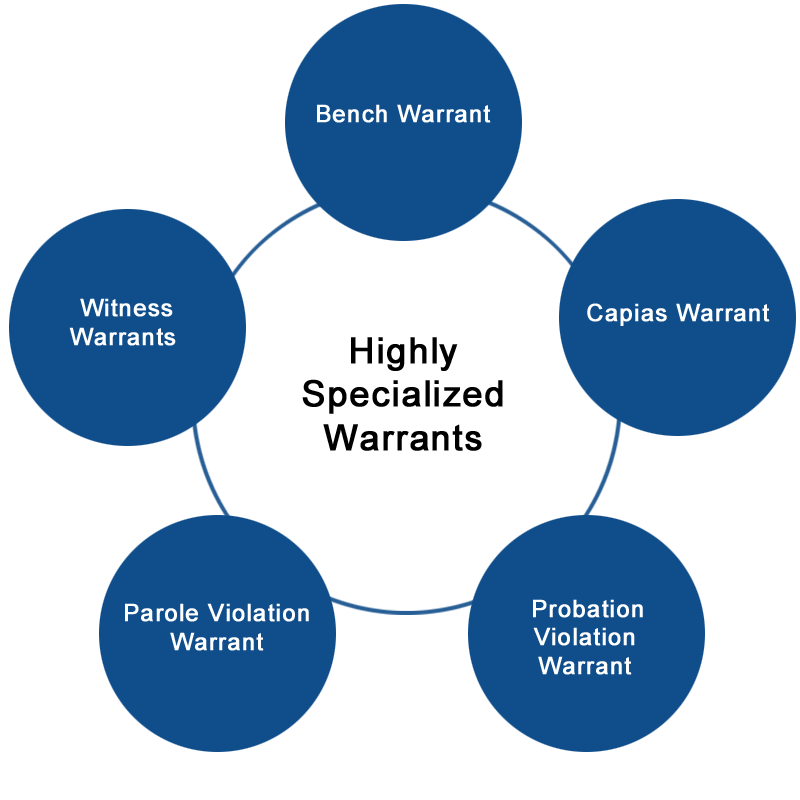
Attachment Warrant: Less severe in execution than an arrest warrant, an attachment warrant is issued for the apprehension of individuals who have failed to meet certain obligations to the court, whether that entails attending a court date, paying a fine or adhering to conditions of probation.
There are also several highly specialized types of warrant issued under specific circumstances. Among these are:
- Bench Warrant: Issued when an individual has missed their court date or violated the terms of their release from incarceration.
- Capias Warrant: Issued post-conviction for those who have failed to comply with court-order fines or community service.
- Probation Violation Warrant: Specifically issued to those serving court-ordered probation if they violate the conditions of their probation.
- Parole Violation Warrant: Like a probation violation warrant, this warrant is issued for the arrest of individuals who have violated the terms of their parole.
- Witness Warrant: Issued in order to compel an individual to appear in court to provide testimony.
- Material Witness Warrant: Issued to detain an individual whose testimony is vital to a court case.
- Alias Warrant: Issued when an error has been made on a previous warrant, such as a typographical or factual mistake. Essentially, it re-issues the original warrant with the rectified information.
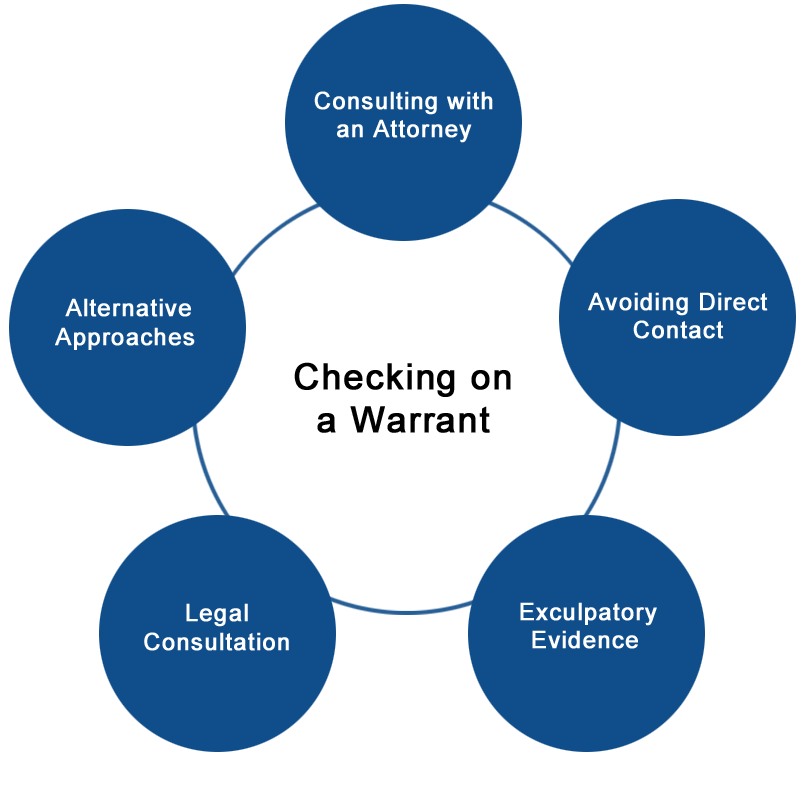 Checking on a Warrant in Louisiana
Checking on a Warrant in Louisiana
Addressing a warrant by appearing at a police station or courthouse without an attorney can be a very bad idea. Doing so may lead to immediate arrest and a potentially extended stay in custody. Without legal representation, you might inadvertently provide information that could incriminate you when questioned. Such statements could later be used against you in court, potentially hindering your chances of having the charges dismissed, reduced, or achieving an acquittal.
An attorney serves as a mediator, gathering details for you and ensuring your whereabouts and information remain private. The attorney will speak directly to the opposing side to better understand the current situation. Having an attorney call on your behalf, or for a loved one, provides a layer of protection, enabling them to better understand the accusations, any evidence there is, and what steps should be taken next. Additionally, an attorney can introduce evidence that demonstrates the charges lack merit or sufficient evidence to warrant an arrest. They also can contest the allegations, possibly leading to a dismissal or reduction of charges, thus eliminating the need for self-surrender.
Free Warrant Checks
If you believe a warrant has been issued for an arrest, schedule a free consultation with an attorney from the Claiborne Firm to discuss alternatives to turning yourself in.
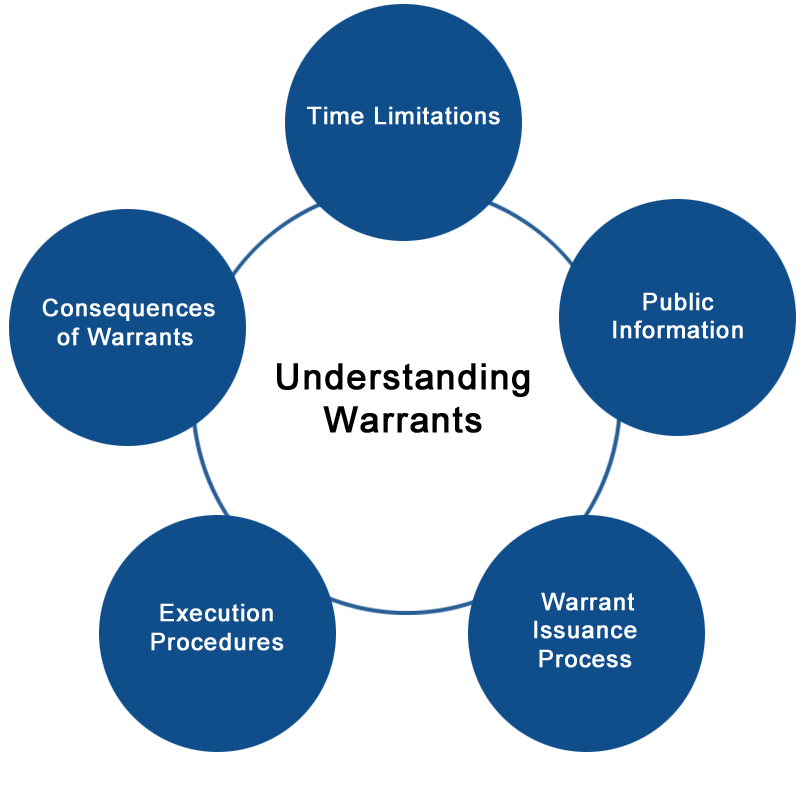 Understanding Warrants
Understanding Warrants
There are several aspects of a warrant, from a legal standpoint, that are beneficial to understand. One of the biggest aspects is the time limitations attached to certain crimes. While arrest warrants and attachment warrants do not expire, Louisiana law does impose time limits in which prosecution may act on certain offenses, called a statute of limitations. In the case of misdemeanors, this statute of limitations is typically a year. For non-capital felonies, that statute of limitations extends to four years, although that can be longer for certain felonies including sex crimes. There is no statute of limitation for murder in Louisiana.
The information on a warrant is generally treated as public information under Louisiana law. This means that everyone from law enforcement to private citizens can see what they contain – the name and description of the accused, details of the alleged crime, information supporting probable cause, as well as the warrant number, jurisdiction, the judge’s name and information on bail, bond or extradition if applicable. Because a warrant puts all of this information in the public domain, it is important to have a warrant resolved quickly to avoid future difficulties obtaining employment, housing or loans.
A warrant typically begins as an investigation by law enforcement into a suspected crime. When they believe enough evidence has been gathered to establish probable cause pointing toward an individual, they will present their findings to a judge or magistrate. If the judge finds sufficient evidence to justify it, they will issue a warrant.
From there, law enforcement has a legal basis for taking that individual into custody. In some cases, they may execute this warrant immediately. In other cases, they may prioritize the execution of a warrant based on how serious a crime it describes, how difficult the alleged perpetrator is to locate, any safety risks that execution of the warrant would place on law enforcement officers or the public. This warrant can be executed at any time or place – during routine traffic stops, or at the individual’s home or place of business.
Upon the location of the individual in question, officers will inform them of the warrant, explain their rights under the law, and place them in custody. At this point, the individual will be exposed to consequences that include jail time, penalties, and a public mark on their criminal record.
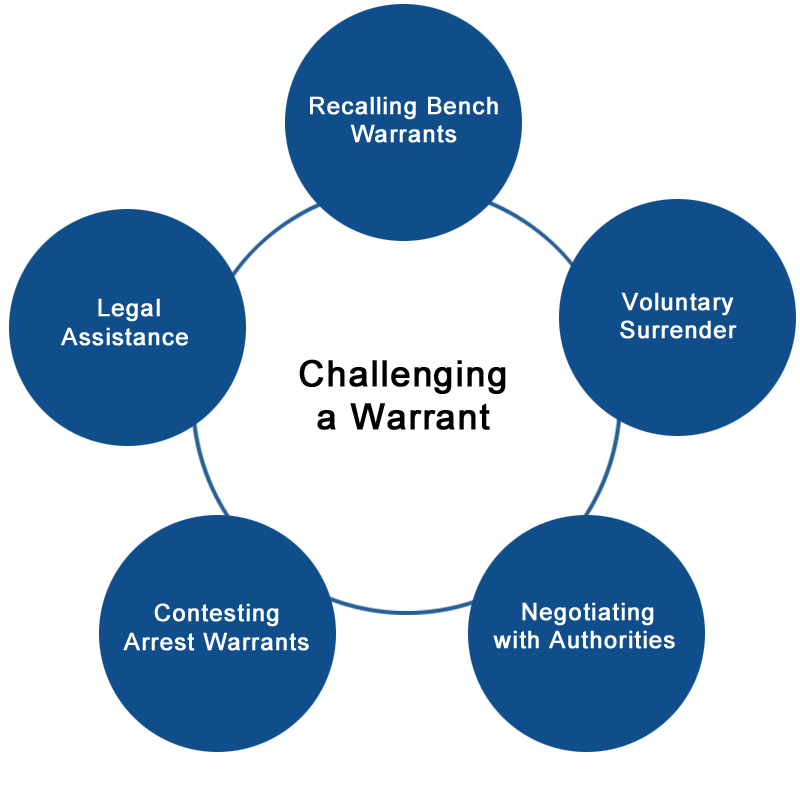 Challenging a Warrant
Challenging a Warrant
There are several ways that an attorney can challenge a warrant. In cases of a bench warrant, your attorney can work with the judge or the courts to request that the judge recall the warrant. This is entirely at the judge’s discretion, but if they agree to recall the bench warrant it is essentially canceled, invalidating the arrest order.
It is also possible to voluntarily surrender to law enforcement, clearing the warrant from public record and addressing the issues that led to its issuance in the first place. This should be done with the assistance of legal counsel, to avoid potentially incriminating yourself or creating additional complexity to the legal procedure. In addition to protecting your rights, an attorney can negotiate on your behalf to either secure a bond so you can return home until your trial or even have the underlying charges dismissed.
There are several ways to contest an arrest or attachment warrant, from challenging the probable cause established by law enforcement and presenting contradictory evidence to addressing issues of non-compliance. If you believe a warrant has been issued for your arrest in the state of Louisiana, contact The Claiborne Firm today. Our attorneys have a proven track record of resolving all types of warrants quickly and without complications, giving you peace of mind and a pathway to a more successful outcome.
Submit your contact information below to learn how we can help you resolve your warrant, so that you can sleep better tonight.
Call (504) 294-8552 or Schedule a Free Case Evaluation Online
